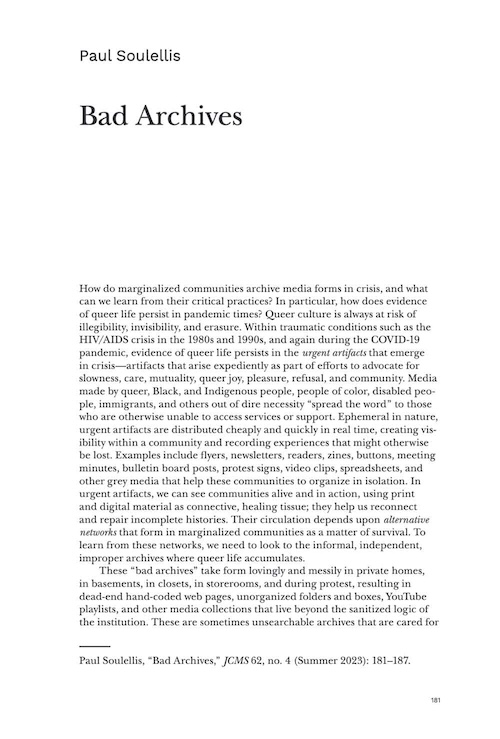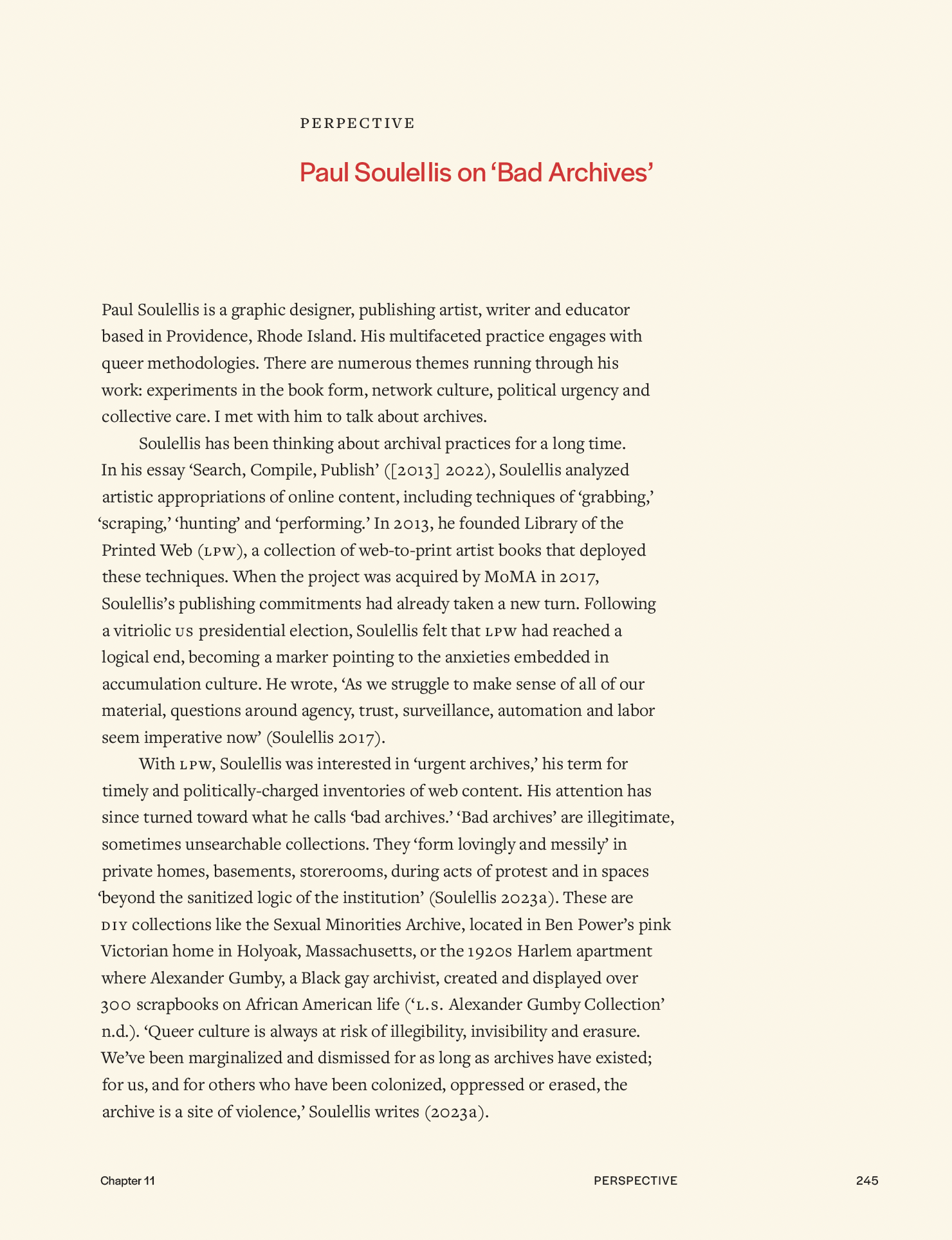Bad Archives (2023)

“Bad Archives” was published in Journal of Cinema and Media Studies 62, no. 4 (Summer 2023): 181–187. It was my contribution to “In Focus: Media Studies beyond Media Studies,” a special section guest edited by Shannon Mattern. The piece was originally written as a talk for “Archiving in the Age of (Im)permanence,” presented at the John Nicholas Brown Center for Public Humanities and Cultural Heritage at Brown University on April 18, 2022.
“Paul Soulellis on Bad Archives” is featured in Thinking through Graphic Design History by Aggie Toppins, published by Bloomsbury.
“How do marginalized communities archive media forms in crisis, and what can we learn from their critical practices? In particular, how does evidence of queer life persist in pandemic times? Queer culture is always at risk of illegibility, invisibility, and erasure. Within traumatic conditions such as the HIV/AIDS crisis in the 1980s and 1990s, and again during the COVID-19 pandemic, evidence of queer life persists in the urgent artifacts that emerge in crisis—artifacts that arise expediently as part of efforts to advocate for slowness, care, mutuality, queer joy, pleasure, refusal, and community. Media made by queer, Black, and Indigenous people, people of color, disabled people, immigrants, and others out of dire necessity “spread the word” to those who are otherwise unable to access services or support. Ephemeral in nature, urgent artifacts are distributed cheaply and quickly in real time, creating visibility within a community and recording experiences that might otherwise be lost. Examples include flyers, newsletters, readers, zines, buttons, meeting minutes, bulletin board posts, protest signs, video clips, spreadsheets, and other grey media that help these communities to organize in isolation. In urgent artifacts, we can see communities alive and in action, using print and digital material as connective, healing tissue; they help us reconnect and repair incomplete histories. Their circulation depends upon alternative networks that form in marginalized communities as a matter of survival. To learn from these networks, we need to look to the informal, independent, improper archives where queer life accumulates.”
Continue reading “Bad Archives” [PDF] →
